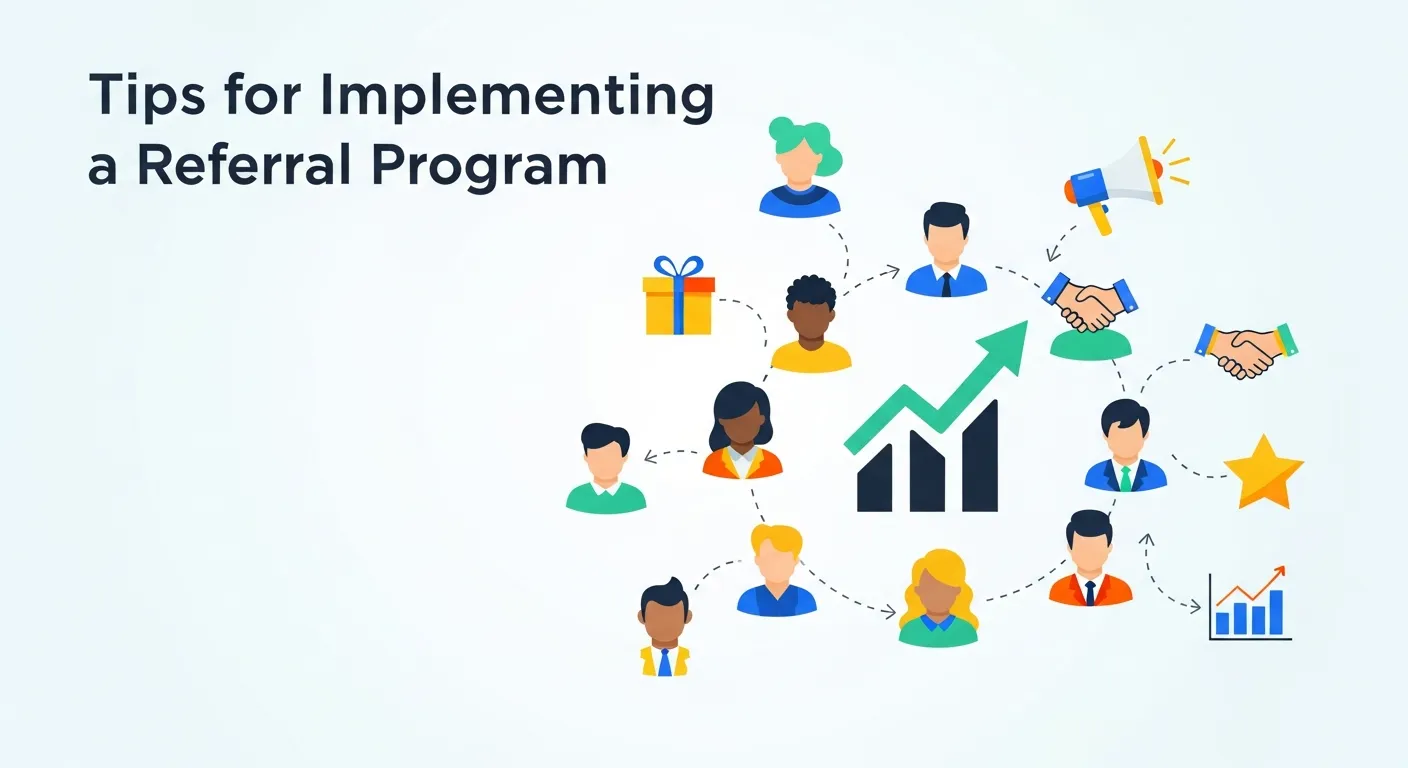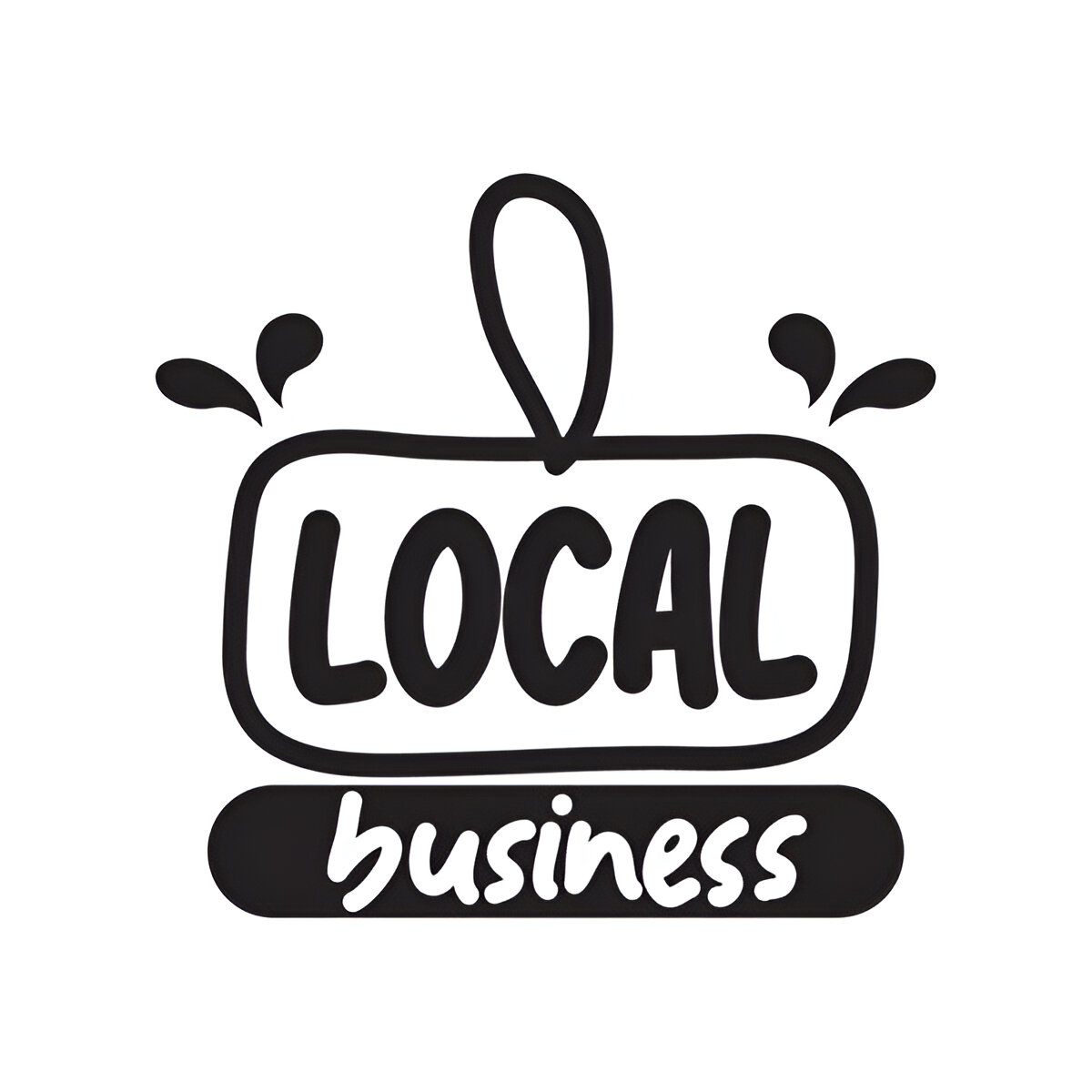Referral marketing can be one of the most effective strategies to grow your local business. By leveraging the power of word-of-mouth and encouraging loyal customers to act as brand advocates, you can attract new patrons and boost revenue without spending heavily on traditional advertising.
This blog will explore the key principles of referral marketing, highlight strategies that work best for local businesses, and offer actionable tips to implement a referral program that drives real results.
Why Referral Marketing Works for Local Businesses
Referral marketing is built on one simple premise: people trust their friends and family more than they trust ads. A Nielsen study found that 92% of consumers trust referrals from people they know over any other form of advertising. For local businesses, this trust is invaluable. Here’s why:
- Stronger Community Ties: Local businesses often serve close-knit communities where trust and word-of-mouth spread quickly.
- Lower Acquisition Costs: A well-designed referral program encourages customers to promote your business for you, reducing reliance on paid advertising.
- Higher Conversion Rates: Referred customers are more likely to convert because they already trust the friend or family member who referred them.

Benefits of Referral Marketing for Local Businesses
Referral marketing isn’t just a buzzword—it delivers tangible advantages for local businesses:
Builds Trust and Credibility
People trust recommendations from friends and family far more than traditional ads. A referral instantly creates a sense of trust in your brand.
Cost-Effective Customer Acquisition
Unlike paid advertising, referral marketing leverages your existing customer base to bring in new business, lowering marketing costs.
Higher Conversion Rates
Referred customers are more likely to make a purchase or visit because they already have a positive endorsement from someone they trust.
Strengthens Community Connections
For local businesses, word-of-mouth spreads quickly within neighborhoods. Referral marketing helps establish your business as a trusted and valued part of the community.
Encourages Customer Loyalty
Offering rewards for referrals not only attracts new customers but also incentivizes repeat business from your current patrons.
Types of Referral Programs
Referral programs can take many forms, and the right approach depends on your business type and audience. Here are the most common types:
- Customer-to-Customer Referrals
This is the classic “refer a friend” model. Existing customers refer friends, family, or colleagues in exchange for rewards like discounts, free products, or store credit. It works well for any local business with repeat customers. - Employee Referral Programs
Employees can act as advocates by bringing in new customers. Offering incentives such as bonuses or gift cards motivates staff to spread the word about your business. - Partner or Business-to-Business Referrals
Local businesses can collaborate with complementary companies. For example, a bakery and coffee shop could offer shared referral rewards to attract customers to both establishments. - Social Media Referral Campaigns
Encourage customers to share your business online. Contests, hashtags, or rewards for online shares can drive referrals that bridge both online engagement and offline visits.
Leveraging Referral Marketing Automation for Local Businesses

Managing a referral program manually can be time-consuming, especially as your customer base grows. That’s where referral marketing automation comes in. Automating your referral program streamlines processes, improves accuracy, and ensures you never miss an opportunity to reward loyal customers.
Key benefits of automation include:
- Automatic Tracking of Referrals: Software platforms like ReferralCandy, Yotpo, or Friendbuy can track every referral automatically, eliminating manual record-keeping.
- Seamless Reward Distribution: Customers receive their incentives promptly without delays, boosting trust and participation rates.
- Personalized Referral Messaging: Automated emails or SMS can remind customers to refer friends and highlight rewards, increasing engagement.
Example: A local coffee shop can set up an automated email that thanks a customer for a purchase and encourages them to share a unique referral link with friends. Each time a friend redeems the link, the system automatically credits both the referrer and the new customer.
By leveraging referral marketing automation, local businesses can focus more on delivering excellent products or services while ensuring their referral program runs efficiently and effectively.
Key Elements of a Successful Referral Marketing Program
For a referral program to work, you need the right strategy. These are the essential elements every local business should incorporate:
1. Easy-to-Use Systems
Keep your referral system simple. Customers are more likely to participate if the process is quick and does not require much effort. Consider using:
- A dedicated referral platform like ReferralCandy or Yotpo.
- QR codes or unique links to track referrals.
- Simple forms to collect referral information in-store or online.
2. Compelling Rewards
Make it worth your customers’ while. Offer rewards that motivate them to spread the word. Some options include:
- Discounts or store credit for the referrer.
- Exclusive free products or services.
- A dual incentive (e.g., $5 off for both the referrer and the referred customer).
Example:
Imagine you own a coffee shop, and you offer a free drink for every three friends a customer refers. The referrer gets a small perk, and your café gains new loyal patrons.
3. Timely and Friendly Communication
Clear communication is the backbone of a successful referral program. Make sure your customers know:
- How to participate.
- What rewards can they earn?
- How easily they can claim their rewards.
Use in-store signs, email marketing, and social media to consistently remind customers about your referral program.
Strategies That Work Best for Local Businesses
While general referral marketing principles are important, local businesses have unique opportunities and challenges. Here are some tailored strategies:
1. Leverage Community Events
Local events, such as farmers’ markets, fairs, or charity runs, are excellent opportunities to promote your referral program. Partner with event hosts or vendors to spread the word.
Example: A yoga studio can sponsor a wellness fair and promote its referral program with a booth offering trial classes and referral cards.
2. Partner with Complementary Businesses
Collaborate with other local businesses that serve a similar customer base. You can offer referral incentives that benefit both businesses.
Example: A bakery and a florist could run a shared referral program where customers who refer new clients to one business receive a discount at the other.
3. Offer Social Media Incentives
Encourage your customers to share your business on social media. Create fun challenges or hashtag campaigns that reward participants with referral bonuses.
Example: A local bookstore might ask followers to post their favorite read with a specific hashtag for a chance to win referral discounts.
4. Word-of-Mouth Events
Host an event specifically designed to generate word-of-mouth referrals. These could include:
- Exclusive previews of new products or services.
- Appreciation events for loyal customers who bring a guest.
- Workshops or demonstrations that attract both current and potential customers.
Pro Tip: Use these events to publicly recognize loyal customers who’ve made multiple referrals. A little public appreciation goes a long way.
Social Referral Marketing: Harnessing Online Engagement to Drive Referrals

In today’s digital-first world, social referral marketing is an essential strategy for local businesses. Encouraging customers to share your brand on social media can expand your reach beyond your immediate community and attract new patrons.
Effective social referral marketing tactics include:
- Hashtag Campaigns: Create a branded hashtag and encourage customers to post photos or reviews of your products. Reward participants with discounts or special offers.
- Shareable Referral Links: Give customers a simple way to share your business online via unique links. Each click or purchase through the link can earn them rewards.
- Social Contests and Giveaways: Run contests where participants refer friends on social platforms to increase their chances of winning prizes.
Example: A local boutique can launch a “Share Your Style” campaign, where customers post outfits purchased from the store with a custom hashtag. Each referral via social media earns both the referrer and the new customer a discount, effectively combining social media for referral marketing with traditional word-of-mouth.
By integrating social platforms into your referral strategy, you can tap into referral marketing hacks that boost visibility, increase engagement, and attract a new wave of customers who might never have discovered your business otherwise.
Tips for Implementing a Referral Program

Step 1: Know Your Audience
Understand your customers’ preferences and motivations. What rewards would excite them? How do they typically engage with your business? Use surveys or feedback tools to gather insights.
Step 2: Set Clear Goals
Decide what success looks like. Do you want to gain 50 new customers in the next three months? Double your foot traffic? Increase online reviews? Set measurable goals and track your progress.
Step 3: Train Your Staff
For in-person businesses, your staff plays a critical role in promoting the referral program. Train them to:
- Explain the program clearly to customers.
- Hand out referral materials like flyers, cards, or QR codes.
- Encourage participation at checkout.
Step 4: Measure and Optimize
Use tracking tools to monitor the performance of your referral program. Analyze:
- How many customers are participating?
- The number of successful referrals generated.
- Which rewards are most effective
Tweak your program based on these insights. For instance, if a 15% discount reward isn’t driving referrals, test a free product instead.
Measuring Referral Marketing Success
Tracking the performance of your referral program is crucial to understanding its impact and making improvements:
- Participation Rate
Monitor how many customers are actively referring others. Low participation may indicate the program is too complicated or the reward isn’t appealing enough. - Number of Referrals Generated
Keep track of how many new leads or customers each participant brings in. This shows the effectiveness of your program. - Conversion Rate of Referred Customers
Measure how many referred leads actually convert into paying customers. Referred customers often have higher conversion rates than cold leads. - Customer Retention and Repeat Business
Track whether referred customers return. Successful referral programs not only bring in new customers but also foster long-term loyalty. - ROI and Revenue Impact
Compare the revenue generated from referrals against the cost of rewards and program management to assess overall profitability.
Real-Life Example of Local Referral Success
- Business: Joe’s Bike Shop, a neighborhood store specializing in bicycles and repairs.
- Challenge: Getting more customers through the door during the off-peak winter season.
- Strategy: Joe’s Bike Shop launched a referral program offering $10 in-store credit for every new customer a current patron referred. For every new customer who made a purchase, both the referrer and the new buyer received the credit.
Results: Within three months, Joe’s saw a 20% uptick in foot traffic and a significant increase in repeat business. It also gained new loyal customers who continued visiting long after the promotion ended.
Final Thoughts and Next Steps
Referral marketing is one of the simplest and most effective ways for local businesses to grow. By creating an easy-to-use system, offering compelling rewards, and leveraging your community connections, you can increase your customer base and build lasting loyalty.
Want to take your referral marketing to the next level? Start small by brainstorming rewards that will truly excite your customers. And remember, even a single satisfied referrer can bring in multiple new patrons.
FAQ – Referral Marketing for Local Businesses
1. What is referral marketing for local businesses?
Referral marketing encourages your existing customers to recommend your products or services to friends and family, helping you attract new customers organically.
2. Why is referral marketing effective for local businesses?
People trust personal recommendations more than ads. For local businesses, referrals build community trust, increase conversions, and reduce marketing costs.
3. How do I start a referral program?
Begin by setting clear goals, understanding your audience, and creating a simple referral system. Offer rewards that motivate participation and promote the program consistently in-store, online, or at local events.
4. What types of rewards work best?
Effective rewards include discounts, store credit, free products, or dual incentives where both the referrer and the referred customer benefit.
5. Can referral marketing work for any local business?
Yes. It works for retail shops, restaurants, fitness studios, salons, and service-based businesses, as long as the program matches customer behavior and preferences.
6. How can I track if my referral program is working?
Track participation, successful referrals, reward redemption, and repeat visits. Collect feedback from customers to refine and improve your program.
7. How can staff help boost referrals?
Train your employees to explain the program clearly, hand out referral materials, and encourage customers to participate during transactions or visits.
8. Are there examples of successful local referral marketing?
Yes. For example, Joe’s Bike Shop offered $10 in-store credit for referrals, which increased foot traffic by 20% and generated loyal new customers within three months.
9. What mistakes should I avoid?
Keep the program simple, offer meaningful rewards, promote it regularly, and track results to make improvements.
Learn more about: Customer Retention Through Referral Marketing







